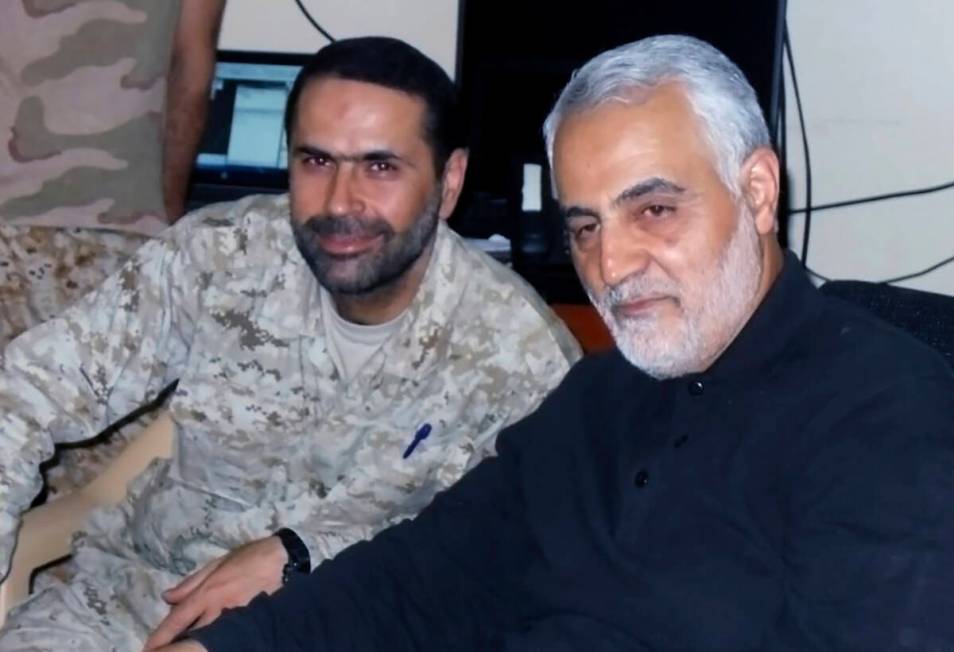Elite Hezbollah commander killed in southern Lebanon

BEIRUT — An Israeli airstrike killed an elite Hezbollah commander Monday in southern Lebanon, the latest in an escalating exchange of strikes across the border that have raised fears of another Mideast war.
The strike on an SUV killed a commander in a secretive Hezbollah unit that operates along the border, according to a Lebanese security official who spoke on condition of anonymity in keeping with regulations. The commander, Wissam al-Tawil, was a veteran of the Iranian-backed Lebanese force who took part in the 2006 cross-border kidnapping of two Israeli soldiers that triggered the last war between Israel and Hezbollah, an official in the group said.
He is the most senior Hezbollah terrorist killed since Hamas’ Oct. 7 terrorist attack into southern Israel triggered all-out war in Gaza and lower-intensity fighting between Israel and Hezbollah, which has escalated since an Israeli strike killed a senior Hamas leader last week in Beirut.
Secretary of State Antony Blinken, who is back in the region this week, appears to be trying to head off a wider conflict.
For the past three months, both Israel and Hezbollah have sought to limit their cross-border exchanges. Hezbollah appears wary of risking an all-out war that would bring massive destruction to Lebanon.
But last week’s killing of Hamas’ deputy political leader, Saleh Arouri, in Beirut threatens to throw the two sides into an escalating spiral.
A Hezbollah rocket barrage hit a sensitive air traffic base Saturday in northern Israel in one of the group’s biggest attacks of the war — an “initial response” to Arouri’s killing, Hezbollah said.
Israeli leaders say their patience with Hezbollah rocket fire is wearing thin and that if diplomacy doesn’t stop it, they are prepared to go to war. They have expressed particular concern about the Radwan Force, the elite Hezbollah unit in which al-Tawil was a commander, which operates along the border.
Prime Minister Benjamin Netanyahu, visiting troops near the border, vowed to return security to the north.
“We prefer that this be done without a wider campaign, but that won’t stop us,” he said.
Hezbollah began firing rockets shortly after Hamas’ Oct. 7 attack, saying it aimed to ease pressure on Gaza. Hamas and other terrorists killed about 1,200 people in southern Israel that day, mostly civilians, and took some 250 people hostage, over 130 of whom remain in captivity.
In the cross-border exchanges, five civilians and 12 soldiers have been killed and more than 150 injured on the Israeli side. Nearly 200 people have been killed on the Lebanese side, mostly fighters but also 20 civilians. Tens of thousands of people in both countries have been driven from homes near the border.
In other developments, Israel said it has largely wrapped up major operations in northern Gaza, though fighting and bombardment there continue. Israeli forces are now focusing on the central region and the southern city of Khan Younis.
Israeli officials say the fighting will continue for many more months as the army seeks to dismantle Hamas and return scores of hostages taken during the terrorists’ Oct. 7 attack.
The military said Monday it had uncovered a large Hamas site for building rockets in the nearby Bureij refugee camp.
Since the war began, more than 23,000 Palestinians have been killed, according to the Hamas-run Health Ministry in Gaza. The death toll does not distinguish between combatants and civilians.
Israel blames Hamas for civilian casualties because the group operates in populated residential areas. The military says it has killed some 8,000 terrorists and says 176 of its own soldiers have been killed in the offensive.
———
Shurafa reported from Deir al-Balah, Gaza Strip, and Jeffery from Cairo. Associated Press writers Kareem Chehayeb in Beirut and Samy Magdy in Cairo contributed.